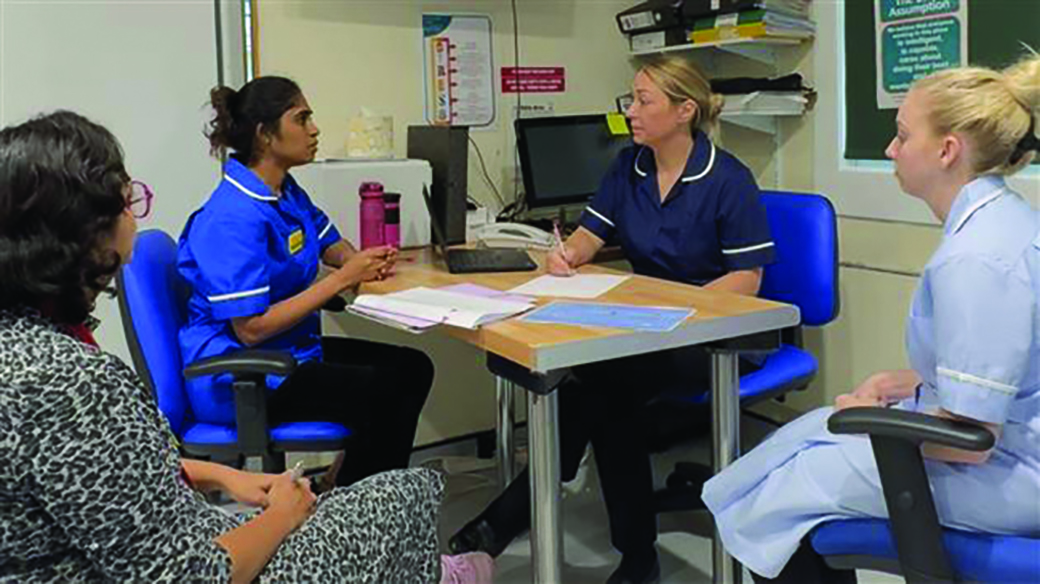
Swarm debrief is one of the Patient Safety Incident Response Framework (PSIRF) learning response methods [1]. It is a group debrief aimed at fostering collective, system-based learning, used immediately after any event where there is something new to learn. During the implementation of PSIRF in our trust, a gap in Swarm debriefing skills was identified, and the simulation and human factors team was asked to provide educational support. In collaboration with the patient safety team and input from the NHS England PSIRF team, we developed a systems-based Swarm guide and an accessible, engaging audio-visual (AV) Swarm simulation to illustrate a more realistic ‘work-as-done’ example [2].
A fictional patient incident was scripted, drawing inspiration from recent incident reviews and our own collective clinical experiences as healthcare professionals. The script mirrored the debriefing prompts and system-based questions within the Swarm guide so that viewers could review the guide and video concurrently. The video, featuring a nurse manager, doctor, nurse, and healthcare assistant, depicts a simulated Swarm debrief held in the manager’s office (Figure 1). Filmed on a smartphone and edited using Mac and CapCut software, the 15-minute video was enhanced with subtitles to improve accessibility and engagement.
The video has been shown to over 100 learning response leads as part of their formal Swarm debriefing training. The Swarm guide and video link are also hosted on our website and are freely available on YouTube, making these resources accessible to a wider audience.
Participants in the Swarm debrief training filled out a post-course survey, where 96.67% rated the video as “very helpful” in enhancing their understanding of a Swarm debrief. Participants described the video as “relatable,” “clear,” and “confidence-building,” noting that it helped clarify the process and provided a relevant and safe example for discussion. Faculty observed that the use of the video within the course enhanced participant engagement and reflective practice.
This AV simulated example of a Swarm debrief demonstrates how low-cost, low-tech media can be produced to enhance staff education and support PSIRF implementation. Video-based learning offers a powerful modality for teaching these complex skills, allowing learners to observe key interactions directed by the Swarm guide and reflect on the process [3]. This video provides a clear example of how a Swarm debrief should unfold in the real world, making this abstract concept more tangible.
As the submitting author, I can confirm that all relevant ethical standards of research and dissemination have been met. Additionally, I can confirm that the necessary ethical approval has been obtained, where applicable.
1. NHS England. NHS England» Patient Safety Incident Response Framework [Internet]. www.england.nhs.uk. 2022. Available from: https://www.england.nhs.uk/patient-safety/incident-response-framework/
2. Steven Shorrock. The Varieties of Human Work [Internet]. Humanistic Systems. Humanistic Systems; 2016. Available from: https://humanisticsystems.com/2016/12/05/the-varieties-of-human-work/
3. Morgado M, Botelho J, Machado V, Mendes JJ, Olusola Adesope, Luís Proença. Full title: Video-based approaches in health education: a systematic review and meta-analysis. Scientific Reports. 2024 Oct 10;14(1).
